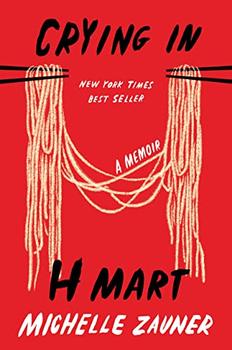Book Club Discussion Questions
Want to participate in our book club? Join BookBrowse and get free books to discuss!
Please be aware that this discussion guide will contain spoilers!
- "My mother was always trying to shape me into the most perfect version of myself" (p. 18). What do Michelle's mother's habits and beliefs reveal about her as a mother? What value do you see in her approach to parenting, and what would you do differently?
- How does Michelle's relationship with her mother evolve over the course of the memoir? Compare their relationship with other parent-child relationships in the memoir and with your own experience.
- H Marts and local supermarkets are a regular setting in the book. How do these locations shape Michelle's experience of food and family?
- Discuss the difficulty of communicating with family members of different generations, who speak another language and come from a different culture. How do Michelle and Nami bridge this divide?
- Music has been a key element of Michelle's life. How does the music that she listens to relate to the events in her life? What playlist would you put together for her family?
- Food is a prominent motif throughout the memoir. How does the author use various food references to anchor you to specific locations, memories, and cultures? Which foods in the book were the most memorable to you and why?
- Michelle touches on various incidents of racism and alienation throughout her life, and discusses both idealizing whiteness and fearing that she is not Korean enough. What does this reveal about the complications of growing up mixed-race and with Asian heritage in America? How does it compare to Asian American representation and access to opportunities today?
- Crying in H Mart deals with caregiving for someone with a terminal illness and its aftermath. What do you think of the depiction of guilt and grief in this story?
- The narrative structure of Crying in H Mart jumps between the past and the present, skipping across time with various anecdotes. How does this reflect Michelle's reconciliation of her mother's memory, and what do you think of her emotional journey by the end of the book?
- The idea of a "scarcity mentality" is mentioned in the book, relating to a lack of Asian and female representation in the media. Did this impact how you think about representation, cultural differences, and community building? If so, how?
Unless otherwise stated, this discussion guide is reprinted with the permission of Knopf. Any page references refer to a USA edition of the book, usually the trade paperback version, and may vary in other editions.
